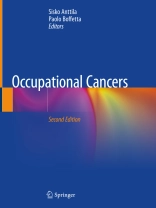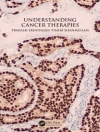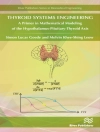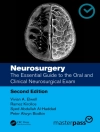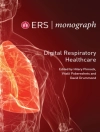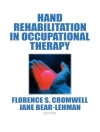This revised and updated new edition of a successful book is a multidisciplinary, comprehensive guide to occupational factors of malignant diseases.
Building on the first edition, new research discoveries and their consequences in our understanding on carcinogenic mechanisms, diagnosis and attribution of occupational cancers are discussed. Examples of such discoveries are germline and acquired mutations of BAP1 in malignant mesothelioma, which have led to changes in diagnostic criteria, and carcinogen-specific genetic and epigenetic alterations in lung cancer. There are several new chapters, including gastrointestinal cancers, epidemiology of lung cancer, cancer of thyroid, and the role of primary health care in occupational cancer control.
Occupational Cancers is aimed at experienced and trainee oncologists, pathologists, clinicians in occupational health, and pulmonologists, as well as epidemiologists, clinical researchers, lawyers and public health officials.
Tabla de materias
Historical Overview of Occupational Cancer Research.- Genetics, Epigenetics and Environmental Interactions.- Mechanisms of Environmental and Occupational Carcinogenesis.- Head and Neck Cancers.- Cancers of the Gastrointestinal Tract (Esophageal, Gastric and Colorectal Cancer).- Pancreatic Cancer.- Sinonasal Cancer.- Cancers of the Intestine, the Liver and the Biliary Tract.- Occupational Risk Factors of Laryngeal Cancer.- Lung Cancer: Clinical Findings, Pathology and Exposure Assessment.- Lung Cancer: Molecular Markers.- Lung Cancer: Mechanisms of Carcinogenesis by Asbestos.- Lung cancer: Mechanisms and Markers – Carcinogens other than Asbestos.- Lung Cancer: Genetic Susceptibility.- Epidemiology of Occupational Lung Cancer.- Malignant Mesothelioma: Clinical and Imaging Findings.- Malignant Mesothelioma: Pathology.- Malignant Mesothelioma: Molecular Markers.- Malignant Mesothelioma: Mechanism of Carcinogenesis.- Malignant Mesothelioma: Asbestos Exposure.- Epidemiology of Mesothelioma.-Soft Tissue and Bone Sarcomas.- Malignant Neoplasms of the Skin.- Breast Cancer.- Malignant Tumours of the Female Reproductive System.- Malignant Tumours of the Male Reproductive System.- Kidney cancer.- Bladder cancer.- Malignant Tumors of the Central Nervous System.- Occupational Exposures and Thyroid Cancer.- Lymphohematopoietic Malignancies.- Occupational Cancer Burden.- Occupational Carcinogens and Cancer in Children.- Strategies for Primary Prevention of Occupational Cancer.- Screening for Occupational Cancer.- Occupational Cancer in the Practice of Occupational Medicine.- The Use of Register Data in Occupational Cancer Control.- Appendix.
Sobre el autor
Paolo Boffetta, MD, MPH gained his medical degree from the University of Turin in 1984. He gained his MPH from the University of Columbia, New York in 1998, at the same time as his Specialization in Public Health from the University of Turin, Italy. He then held roles in the area of cancer epidemiology and public health in the US, France, Germany, Italy, Canada, Greece, the UK and Sweden. He is currently Associate Director for Global Oncology at the Tisch Cancer Institute, Icahn School of Medicine at Mount Sinai, New York, NY, USA, and Professor of Occupational Medicine at the Department of Medical and Surgical Sciences, University of Bologna, Italy.
Sisko Anttila, MD, Ph D, is Head of Pulmonary Pathology at the Department of Pathology, University of Helsinki and Helsinki University Hospital, Helsinki, Finland. Previously, she worked as chief physician and pathologist at the Finnish Institute of Occupational Health, Helsinki, Finland. Her research has concentrated on gene-environment interactions in pulmonary carcinogenesis, including tobacco-derived carcinogens and asbestos. Dr. Anttila has special interest in pulmonary pathology, especially pathology of occupational lung diseases and malignant mesothelioma. She was a member of a working group establishing international criteria for asbestos-related diseases (Asbestos, Asbestosis, and Cancer, Helsinki Criteria for Diagnosis and Attribution 2014).
